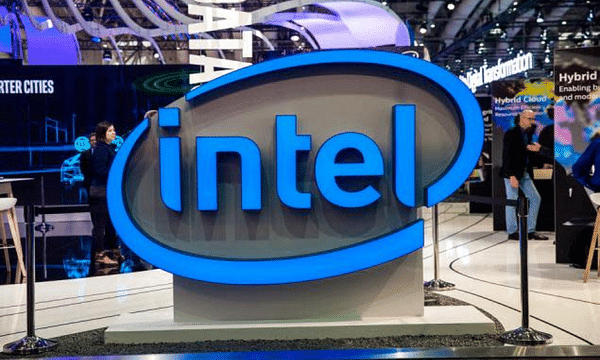Intel to leave Dow Jones after 25 years
Intel, a semiconductor industry icon, will lose its place in the prestigious Dow Jones Industrial Average stock index after a quarter century. The move, announced by S&P Dow Jones Indices, marks a major shift in the technology sector, where the one-time leader faces growing competition and strategic failures. A new player in the index will be Nvidia, which has become a driver of artificial intelligence over the past few years.

The fall of Intel: From Leader to Trouble
Intel $INTC, founded in 1968, has undergone an impressive evolution. It originally made memory chips, but in the 1980s it focused on processors, which became key components of personal computers. In the 1990s, the company's elaborate "Intel Inside" campaign transformed its processors from commodity products into premium brands that were virtually everywhere. Intel has long been a symbol of innovation and strength in the American semiconductor industry.
In recent years, however, the company has faced fundamental problems. It has failed to keep up with the manufacturing innovations of competitor Taiwan Semiconductor Manufacturing Company (TSMC), while missing opportunities in the growing artificial intelligence sector. One of the most cited mistakes was the decision not to invest in OpenAI, the creator of ChatGPT, which proved to be a strategic failure. As a result, Intel's stock is down 52% this year, making it the worst performer in the Dow and leaving it with the lowest share price in the index.
In contrast, Nvidia $NVDA has experienced unprecedented growth over the past two years. Shares of the company, which has played a key role in the development of generative artificial intelligence, have risen sevenfold in that period. This year alone, they have more than doubled in value, demonstrating the company's strategic position in a rapidly changing technology landscape.
The rise of Nvidia: a new era for the technology sector
Nvidia, which was previously known primarily among gamers for its GPUs, is now making a significant impact across the entire spectrum of industries, particularly with its AI technologies. Nvidia's inclusion in the Dow Jones index instead of Intel reflects changes across the technology sector. The recent ten-for-one stock split has further facilitated access to its shares for retail investors and contributed to the increase in its market value. Nvidia is now the second most valuable company in the world and is seen as an indicator of developments in the AI market.
Intel's replacement of Nvidia in the Dow Jones index symbolises broader changes in the technology industry. While Intel remains a recognised pioneer of semiconductor technology, its inability to adapt to changing market conditions has allowed new competitors to stand out. As artificial intelligence becomes more prevalent, the semiconductor industry is experiencing sweeping changes that will impact the future of technology and innovation.
Intel's departure from the Dow Jones index thus closes an era of the semiconductor industry while highlighting Nvidia's importance as a new driver of technological innovation.
Disclaimer: You will find a lot of inspiration on Bulios, but stock selection and portfolio construction is up to you, so always do a thorough analysis of your own.
Source.